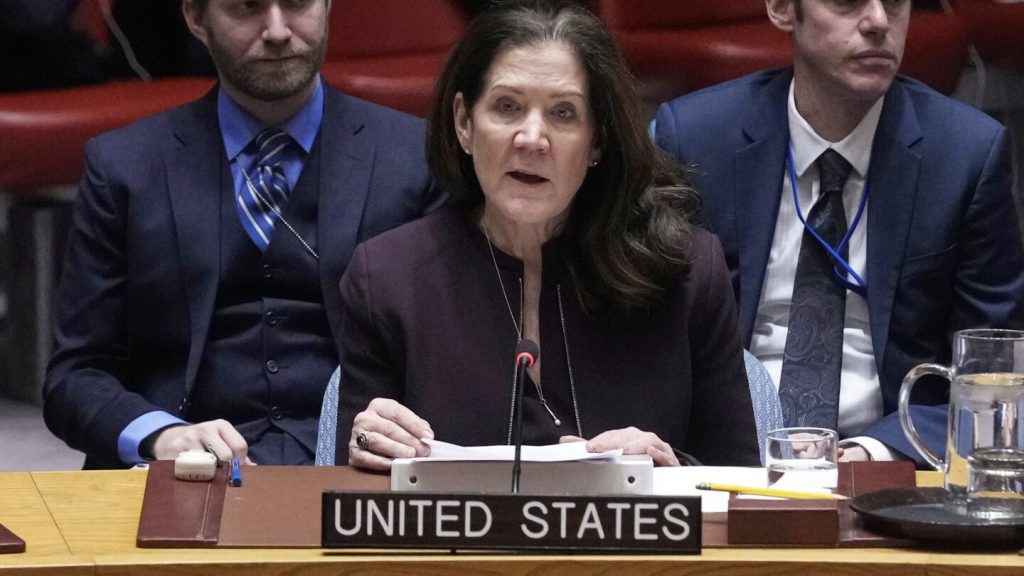UNITED NATIONS (AP) — The leading U.S. envoy at the United Nations, Dorothy Shea, stated to Congress two years ago that Russia’s incursion into Ukraine was both “unprovoked” and “unjustified.” She called on U.N. members to denounce Russia’s aggression and push for an end to the conflict.
In February, Shea, a seasoned diplomat, expressed the Trump administration’s remarkable decision to part ways with European allies, opting not to support a U.N. resolution that attributed blame to Russia on the war’s third anniversary.
While it is common for diplomats to retain their roles during transitions between U.S. presidents and administrations, Shea’s position has become unexpectedly significant amid the profound changes in U.S. foreign policy under President Donald Trump’s “America First” approach, which is reshaping the post-World War II international landscape.
Shea’s tenure is set to extend beyond previous expectations following Trump’s atypical choice last month to withdraw his nominee for U.N. ambassador, Rep. Elise Stefanik, due to a narrow Republican majority in the House.
“Shea’s position is distinct, and it reflects a remarkable shift that goes beyond mere change from one administration to another; it’s indicative of a new era in U.S. foreign policy,” noted Phillip Reeker, a former acting assistant secretary of state for Europe. “The vote alterations at the U.N. regarding the Russia-Ukraine conflict marked a critical pivot in U.S. policy.”
A Change in U.S. Voting at the U.N.
On February 24, the U.S. voted alongside Russia against a European-supported resolution urging an immediate withdrawal of Russian forces. The U.S. proposed an alternative resolution that recognized the “tragic loss of life” and called for a “swift end to the conflict,” but it entirely omitted mention of Russia’s aggressive actions as the Trump administration began negotiations with Russia on a ceasefire.
Shea remarked, “Engaging in mere verbal sparring in New York might make diplomats feel justified, but it won’t save lives on the battlefield. We must demonstrate to ourselves and our citizens that we can unite and agree on fundamental principles. Let us showcase that the courageous vision of peace that once guided us can prevail.”



